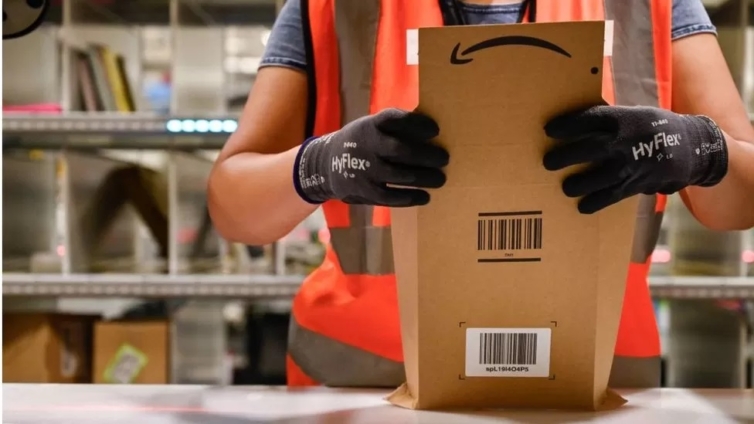
Audio By Carbonatix
US regulators have sued Amazon, alleging that the internet giant is illegally maintaining monopoly power.
The Federal Trade Commission (FTC) said Amazon uses "a set of interlocking anticompetitive and unfair strategies" to push up prices and stifle competition.
Amazon said the lawsuit was "wrong on the facts and law, and we look forward to making that case in court".
It is the latest technology giant to be sued by US regulators.
The FTC's boss, Lina Khan, has had Amazon in her crosshairs for years.
In 2017, Ms Khan, then only 29, published a major academic article arguing the online retailer had escaped anti-competition scrutiny.
"With its missionary zeal for consumers, Amazon has marched toward monopoly," she said at the time.
Since her surprise appointment as FTC Chair in 2021, this case has been widely expected - and viewed as a crucial test of her leadership.
The dominance of a handful of powerful tech firms has led some US politicians to call for action that would promote more competition in online search, retail and social media.
However, the FTC under Ms Khan has had little to show for its strong rhetoric against Big Tech.
In February it lost its attempt to stop Meta from buying VR company Within.
And in July it lost an attempt to block Microsoft from completing its deal to buy the maker of Call of Duty.
There is pressure on Ms Khan to make at least one high-profile complaint stick - and at the FTC they have high hopes for this case.
The agency, along with 17 state attorneys, claims that Amazon is a "monopolist" that stops rivals and sellers from lowering prices.
The regulator also alleged the internet giant's actions "degrade quality for shoppers, overcharge sellers, stifle innovation, and prevent rivals from fairly competing against Amazon".
However, Amazon says that if the "misguided" FTC lawsuit is successful, it would mean fewer products to choose from, higher prices, and slower deliveries for consumers.
The key part of the case involves consumers losing money - getting worse deals - because of the alleged monopoly.
US anti-competition legislation is complicated, but generally, prosecutors have to show companies have acted in a way that hurts consumers financially.
That isn't always an easy thing to prove when it comes to Big Tech, as many of their services are free - like Google's search engine or Meta's Instagram.
Earlier this month, a court battle began between Google and the US government, which has accused it of having an advertising technology monopoly.
Latest Stories
-
Jospong Group CEO, wife support over 5,000 Ghanaians with food, cash on New Year’s Day
19 minutes -
Life begins at 40: A reflection on experience and leadership
54 minutes -
Maresca leaves Chelsea after turbulent end to 2025
1 hour -
NPP still hurting after 2024 loss – Justin Kodua
1 hour -
Ghana declares war on illegal streaming of pay-TV content
2 hours -
Vice President leads 44th anniversary commemoration of 31st December Revolution
2 hours -
Valencia coach Fernando Martin dies in Indonesia boat accident
2 hours -
Nigeria AG’s intervention brings relief to River Park estate investors – JonahCapital
2 hours -
High number of youth behind bars is a national loss – Ashanti regional prisons commander
2 hours -
Nhyira Aboodoo shifts to monumental projects, injects GH₵270,000 into Ashanti orphanages
2 hours -
Police restores calm after swoop operation at Aboso
3 hours -
Through thick and thin in 2025: KGL Group makes national, global impact
3 hours -
Clean Air Fund sets 2026 targets, pushing gov’t toward funding, tougher laws and real health gains on air pollution
3 hours -
New Year begins with 15.92% water and 9.86% electricity tariff hikes
3 hours -
TUC, PURC call for calm amid power tariff concerns, assure public of stakeholder engagement
3 hours

